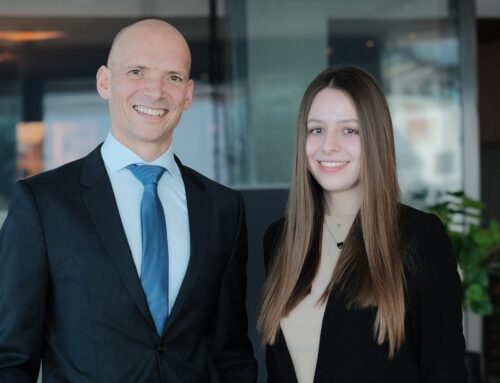This article was first published in print in Hospitality Quarterly, the official publication of the UK’s Institute of Hospitality.
If you need proof of how fast the world of hospitality is changing, a good place to start is an international travel trade fair like ITB Berlin. This particular event incorporates a large exhibition hall which, in the past, would be full of hotel brands demonstrating their latest room or F&B concepts.
When I visited ITB earlier this year, that same hall was almost entirely made up of technology companies, ranging from global players such as Google through to a host of smaller players and start-ups. They were showcasing automated concierge services, property management systems, consumer measurement interfaces, and so on. The possibilities for hotel owners and guests to interface with technology today seem almost endless.
For the established hotel operators, already dealing with disruption from homesharing and online travel agents (OTAs), this is another significant challenge in the in-tray. Everyone is trying to take a slice of the customer journey, whether it’s before property, on property or after property. If traditional hotel players don’t move fast and don’t adjust, they are going to see their business taken away from them piece by piece.
Adding to this mix is the rapid rise of co- working/co-living concepts, led by WeWork, which now boasts 425 international properties and counting. Not content with ‘owning’ the co-working space, WeWork has also launched a co-living brand, WeLive. This offers fully furnished apartments and flexible rentals, with the promise: “All you have to do is show up with your suitcase”.
THE EMPIRES STRIKE BACK
Faced by the twin disruptions of digital technology and changing market dynamics, the major hospitality operators are fighting their corner, each by its own rules.
Hilton, for example, is focusing on its strengths in ‘fulfilment’. As CEO Christopher Nassetta recently told the travel portal Skift, “We’re not trying to compete with Google, Amazon and Apple. Our view is that we’re on the fulfillment side, that we’re the experience. We’re the hearts and souls that make that stay different, and we make sure that product is right, along with the amenities and the service delivery.”
For its part, Accor is choosing to fight on opposition turf, using its scale and resources to make inroads into the co-working and lifestyle hospitality spaces. This has been demonstrated by stake-building in brands such as Mama Shelter and 25Hours Hotels, together with an accelerated rollout of co- working brand Wojo (formerly Nextdoor) with the stated aim of becoming Europe’s leader in this market.
With these initiatives, Accor is saying “we don’t just want to be about hospitality, but also lifestyle; about the way people live and work”. The company’s positioning is to offer services and hospitality to the community at large, as well as solving challenges that the community might have around services.
Marriott International is aiming to capture the essence of travel: moving beyond being a pure-play hotel company. This is all about creating the most compelling consumer proposition, through the combination of scale and market power as well as a breadth of offering that plays to every consumer segment.
While Marriott has made important acquisitions in the hotel industry, most notably Starwood, it has also done things in the OTA Space, as well as in homesharing, branded residences and extended stay.
What does all this activity say about the future of hospitality? Our industry has a history of being a little slow to cotton on to new trends, but we need to get our act together. Because if we don’t create the new concepts and service lines outside our core, then someone else will.
We have the skills and the talent, the social interactions and the knowledge, It’s all there — we need to be bold and take advantage.

JONATHAN HUMPHRIES
Jonathan Humphries heads up the Specializations in International Hotel Development and Finance for both the Bachelors and the Masters Programs at Glion. The specializations combine academics, industry experts and partners to create a best-in-class learning experience for the students. In addition, Jonathan is Chairman and Owner of HoCoSo, head of a team focused on creating new hospitality concepts.
About HoCoSo
HoCoSo are advisors with a difference. We create tailor-made and innovative solutions for clients’ hospitality-led projects by bringing together the optimum team of sector specialists. Jonathan Humphries, Chairman and Owner of HoCoSo, and his direct team specialize in the extended-stay, co-living, and hotel-alternatives hospitality market; luxury, lifestyle and boutique hotels; and resort developments in Europe, the Middle East and Africa (EMEA). Our strengths lie in the following core services:
- Product & Concept Creation, for portfolio & individual asset developments
- Strategic Development Projects with a focus on new-market / new-concept business expansion planning, operator selection, market and financial feasibility studies
- Transformative Asset Management for brand re-positioning, asset re-evaluation and concept re-structuring.
- Hospitality Education for companies and academic institutions, with a focus on bespoke course development, training and teaching
- Workshops, Keynotes and Conference Moderating for boards, leading international conferences and incubators








Leave A Comment